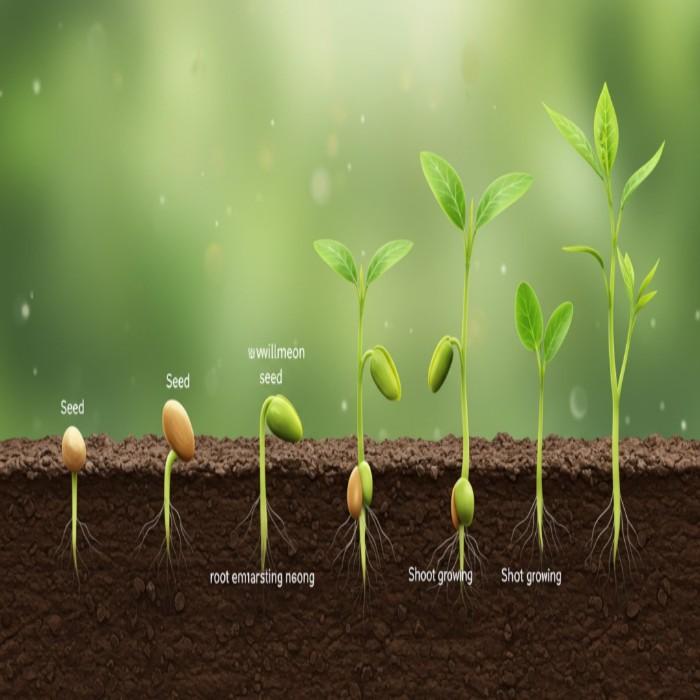-
Noticias Feed
- EXPLORE
-
Páginas
-
Grupos
-
Eventos
-
Blogs
how long does it take for seeds to germinate for maximum yield

Understanding the Germination Process
Germination is the process where seeds begin to develop into healthy plants. Discover how long does it take for seeds to germinate, as germination times can vary from a few days to months based on seed type and conditions. It starts when seeds absorb moisture from the surrounding soil or growing medium. The water activates internal enzymes that trigger the early stages of plant growth. Roots usually emerge first, anchoring the plant and absorbing nutrients. Shoots then appear, pushing upward toward the light. The speed of germination depends on several environmental and biological factors. Knowing how this process works allows growers to create ideal conditions. Understanding this stage is essential for those aiming for maximum yield.
Factors That Influence Germination Time
Multiple factors affect how long seeds take to germinate for maximum yield. The type of seed strongly influences the timeline, with some species sprouting faster than others. Soil temperature plays an important role, as seeds germinate best within a specific range. Moisture must remain steady to prevent seeds from drying out or rotting. Some seeds require light exposure during germination, while others germinate best in darkness. Soil texture and aeration also affect root development speed. Additionally, seed freshness impacts germination success, with fresher seeds performing better. These combined factors determine the overall time required for healthy germination.
Average Germination Times for Common Crops
Each plant species has its own average germination period under optimal conditions. Lettuce seeds often germinate in as little as two to seven days. Tomato seeds typically take around five to ten days before shoots appear. Carrot seeds usually require ten to twenty-one days for visible growth. Corn seeds sprout within seven to ten days under proper moisture and temperature. Beans often germinate quickly, sometimes within only seven days. Spinach may require six to ten days for germination, depending on soil conditions. Knowing these average times helps gardeners schedule planting for consistent harvests.
How to Prepare Seeds for Faster Germination
Proper preparation can significantly reduce germination time and improve yield potential. Soaking seeds in warm water for several hours softens the seed coat, allowing moisture penetration. Scarifying hard-coated seeds by gently scratching the surface speeds water absorption. Pre-sprouting seeds indoors before planting in soil shortens outdoor germination periods. Using a sterile seed-starting mix prevents harmful fungi from damaging young seedlings. Placing seeds in a warm, well-lit location ensures steady development. Maintaining consistent moisture without waterlogging encourages strong root growth. These methods give seeds a better start and lead to healthier plants.
Optimal Conditions for Maximum Yield
Creating the right environment ensures seeds germinate quickly and produce strong plants. Maintain soil temperatures within the recommended range for each crop variety. Keep soil consistently moist but avoid excessive water that can cause rot. Provide proper light levels to meet each plant’s germination requirements. Use nutrient-rich yet well-draining soil for strong root establishment. Protect seeds from extreme weather changes during early growth. Ensure adequate air circulation around seedlings to prevent fungal diseases. When conditions remain stable, seeds develop faster and produce a higher overall yield.
Common Mistakes That Delay Germination
Several mistakes can slow seed germination and reduce yield potential. Planting seeds too deep may prevent shoots from reaching the surface. Using poor-quality or expired seeds reduces germination rates significantly. Overwatering creates soggy conditions that cause seeds to rot. Allowing soil to dry out completely interrupts the germination process. Planting in soil with extreme temperatures can damage young sprouts. Ignoring pest problems during germination can lead to complete seed loss. Avoiding these mistakes ensures seeds germinate within their expected time frame for maximum yield.
Tips for Monitoring and Supporting Seed Growth
Careful monitoring during germination leads to stronger seedlings and higher yield. Check soil moisture daily to maintain ideal hydration levels. Adjust watering routines according to environmental conditions and plant needs. Monitor temperature closely to keep it within the recommended range. Observe seedlings for signs of stress such as discoloration or wilting. Use protective covers to shield seedlings from heavy rain or direct sun. Thin overcrowded seedlings to allow proper space for growth. With consistent attention, seeds develop quickly into healthy, productive plants.
- Art
- Causes
- Crafts
- Dance
- Drinks
- Film
- Fitness
- Food
- Juegos
- Gardening
- Health
- Home
- Literature
- Music
- Networking
- Other
- Party
- Religion
- Shopping
- Sports
- Theater
- Wellness


